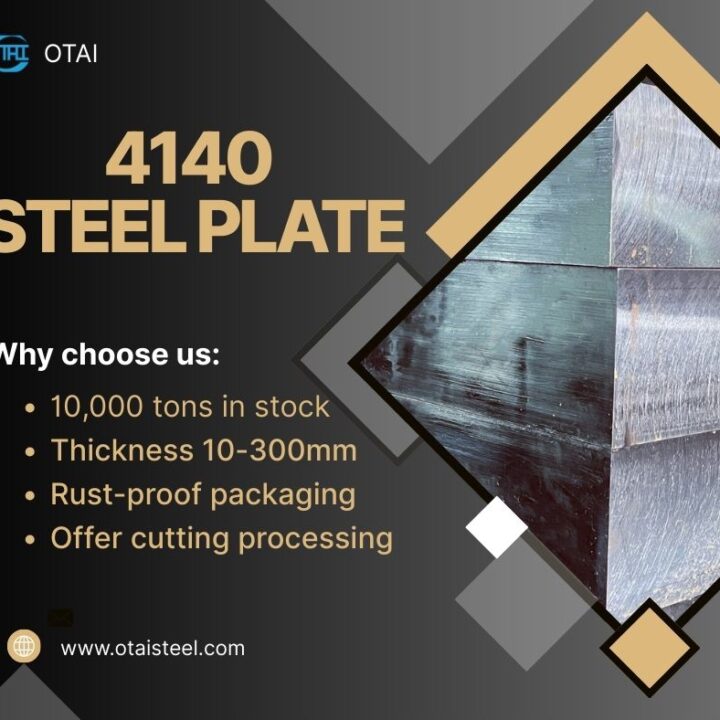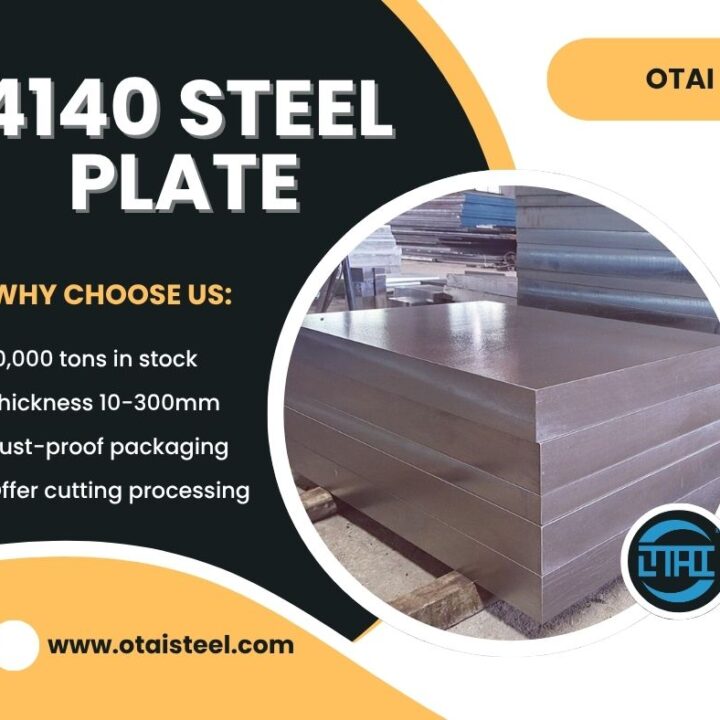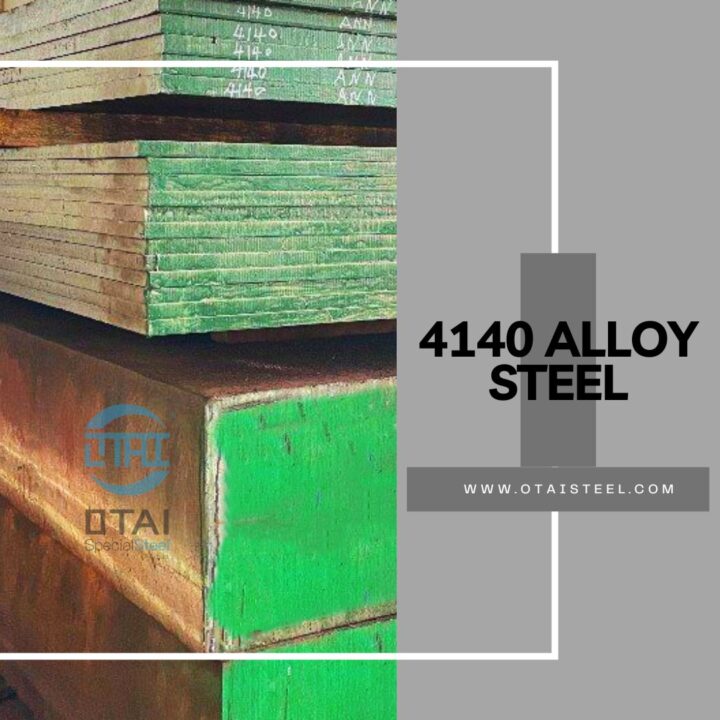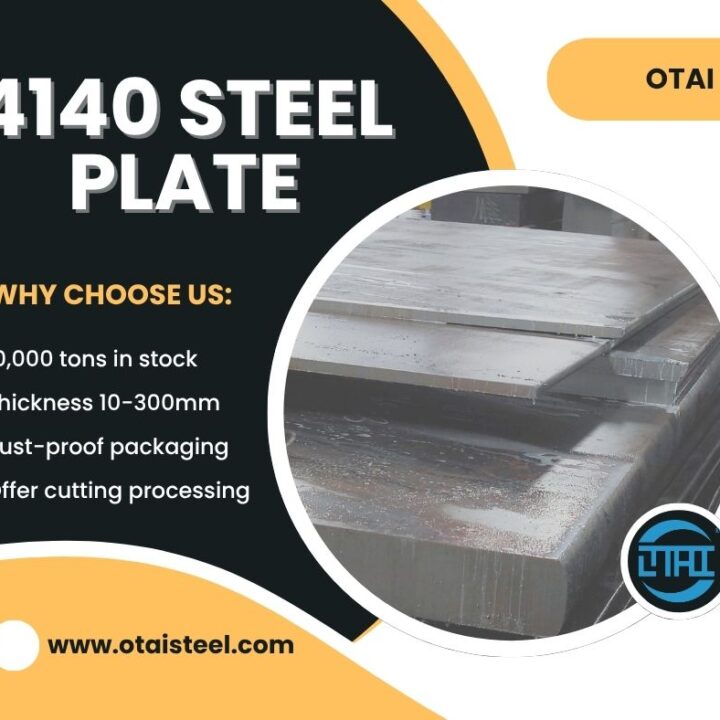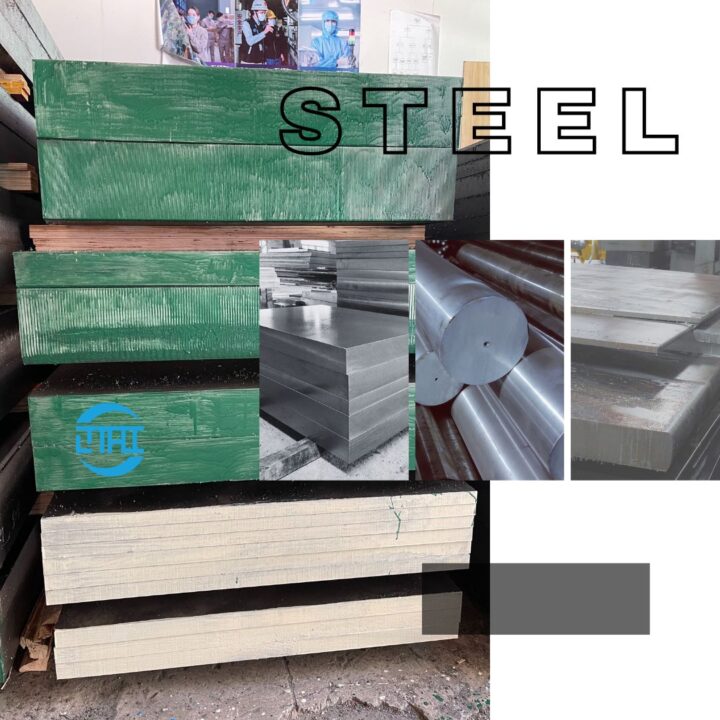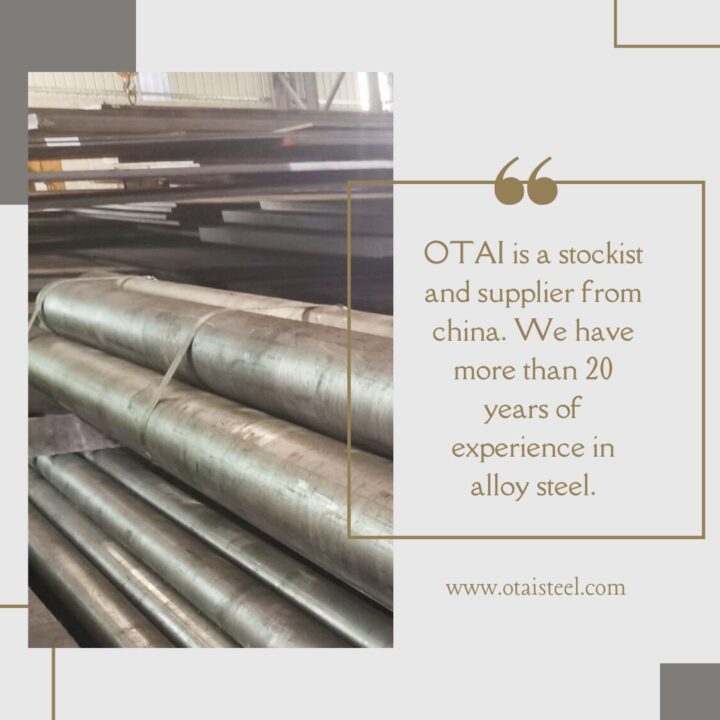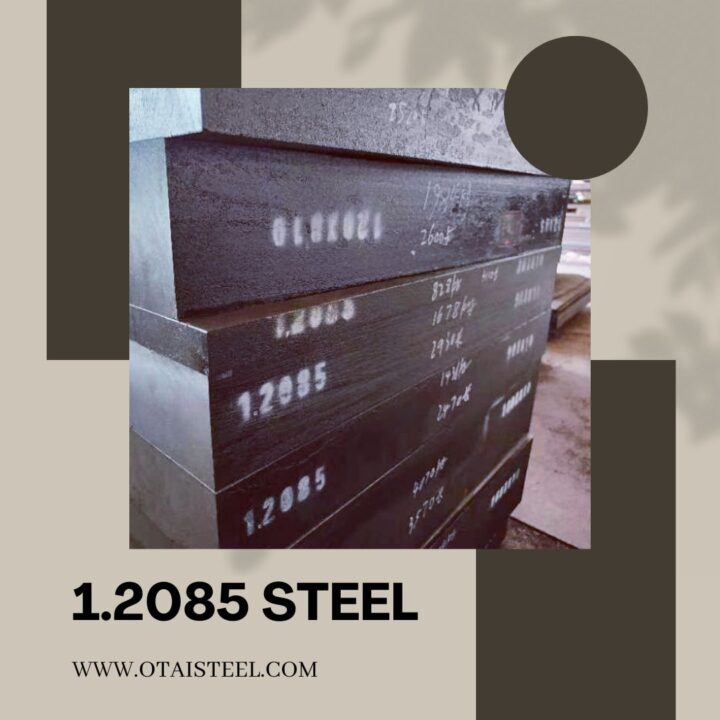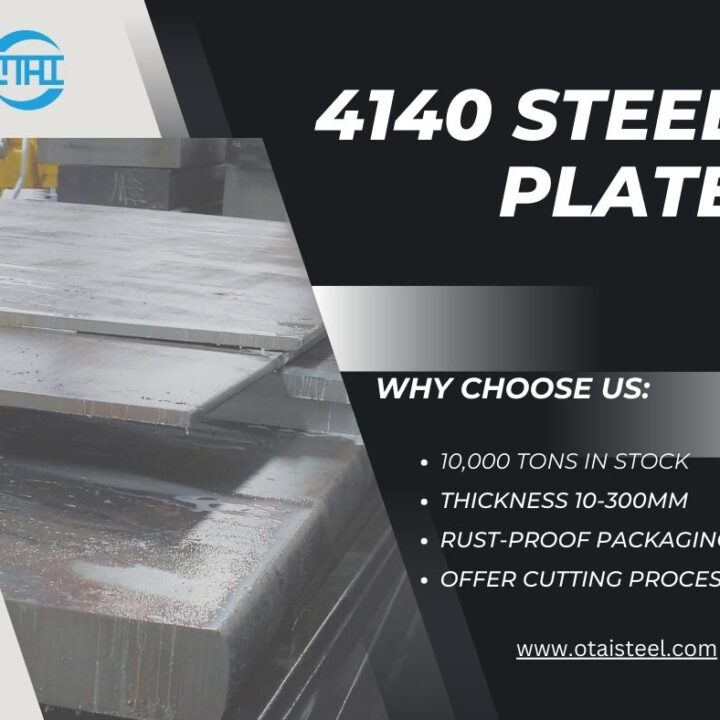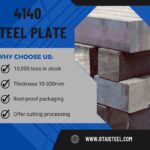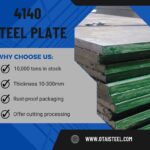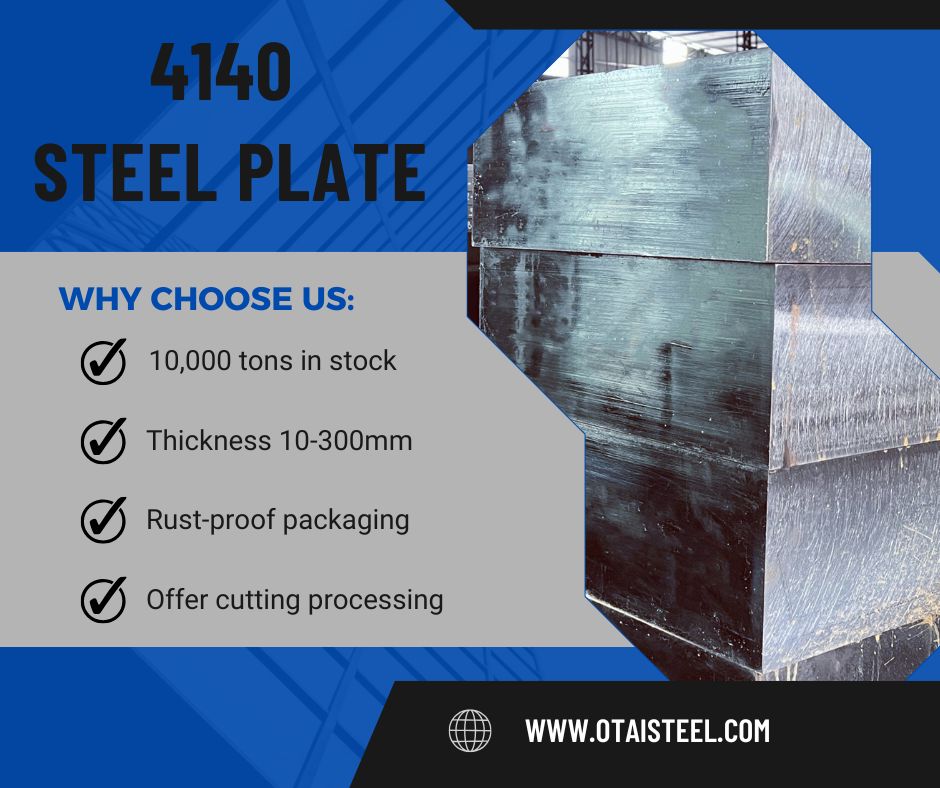 Gear 4140 Steel: Why It’s the Go-To Material for High-Performance Gears
Gear 4140 Steel: Why It’s the Go-To Material for High-Performance Gears
When it comes to producing gears that must handle heavy loads, high torque, and continuous wear, few materials can compete with gear 4140 steel. Known for its excellent balance between strength, toughness, and machinability, 4140 steel has become the benchmark material for industrial gears, automotive transmissions, and heavy machinery applications.
In this guide, we break down why 4140 steel enjoys such broad use for gears, detail its key material properties, stack it up against competing steels, and highlight what engineers must weigh before specifying it for gear manufacturing.
⚙️ Why 4140 Steel is Popular for Gears
Gears are among the most critical machine components. They must transmit motion efficiently without failing under stress. The properties of 4140 steel for gears make it stand out:
-
High strength-to-weight ratio – Gears made from 4140 can sustain high torque loads without being overly heavy.
-
Excellent hardenability – Through heat treatment of 4140 gear steel, manufacturers can achieve surface hardness up to 55 HRC, perfect for wear resistance.
-
Good fatigue resistance – Essential for gears that endure millions of load cycles.
-
Versatility – Can be used in spur gears, helical gears, bevel gears, and even worm gears.
This unique combination drives automotive, aerospace, oil & gas drilling, and mining sectors to trust 4140 alloy steel gears.
🔬 Mechanical Properties of 4140 Gear Steel
To understand why 4140 steel is ideal for gear production, let’s look at its typical mechanical properties after quenching and tempering:
| Property | Value (Approx.) |
|---|---|
| Yield Strength | 655–850 MPa |
| Tensile Strength | 950–1100 MPa |
| Elongation | 20–25% |
| Impact Toughness (Charpy V-notch) | > 50 J |
| Hardness (quenched & tempered) | 28–32 HRC (core), up to 55 HRC (surface) |
These values highlight that 4140 steel gears can combine a tough core with a hardened surface – the perfect match for high-wear applications.
🔧 Heat Treatment for Gear Applications
Most gears made from 4140 steel undergo special heat treatments to optimize performance:
-
Carburizing or Nitriding – Improves surface hardness for longer life without making the core brittle.
-
Quenching & Tempering – Achieves the balance between hardness and toughness.
-
Induction Hardening – Provides localized hardening on gear teeth surfaces.
By applying these processes, 4140 gear steel properties can be tailored for applications ranging from precision automotive gears to heavy-duty industrial gearboxes.
🔄 Gear 4140 Steel vs Other Gear Materials
Not all gears use 4140 steel. Let’s see how it compares:
| Material | Advantages | Disadvantages |
|---|---|---|
| 4140 Steel | High strength, good wear resistance, economical | Requires heat treatment |
| 8620 Steel | Excellent carburizing response, great fatigue resistance | Lower core strength than 4140 |
| Cast Iron | Cheap, good damping capacity | Brittle, not for high-stress gears |
| Stainless Steel (17-4PH) | Corrosion resistance, good toughness | Expensive, harder to machine |
👉 Engineers often choose 4140 gear steel when they need a balance between performance and cost.
🛠️ Machinability of 4140 Steel for Gears
One advantage of 4140 steel is that it offers good machinability in the annealed condition. Gear cutting methods such as hobbing, shaping, and broaching can be performed effectively before heat treatment.
After hardening, grinding 4140 steel gears ensures precision and surface finish, making them suitable for high-speed applications like automotive gearboxes.
🚗 Real-World Applications of Gear 4140 Steel
4140 steel gears are used across industries:
-
Automotive transmissions – gears that must endure continuous torque changes.
-
Aerospace components – where weight and fatigue strength are critical.
-
Oilfield drilling gears – subject to shock loading and harsh environments.
-
Industrial gearboxes – for mining, cement plants, and steel mills.
The versatility of gears made from 4140 steel makes them a universal choice for industries demanding durability and reliability.
🏭 Company Advantages – Why Choose OTAI Special Steel
At OTAI Special Steel, we specialize in supplying 4140 steel plates, bars, and pre-machined gear blanks. Our advantages:
-
✅ Large inventory: over 10,000 tons of 4140 steel in stock (6mm–300mm thickness).
-
✅ Value-added services: cutting, heat treatment, forging, and machining for gear production.
-
✅ Strict quality control: UT testing, chemical analysis, and SGS third-party inspection.
-
✅ Global reputation: trusted supplier for Thyssenkrupp, Borealis, Schlumberger and other top corporations.
Whether you need 4140 gear steel round bars or finished gear blanks, we deliver cost-effective and reliable solutions.
❓ FAQ – Gear 4140 Steel
4140 delivers a higher-strength core; 8620 excels in carburized case-hardened designs. Let the application dictate the pick.
Induction hardening or carburizing pushes surface hardness to a Rockwell 55 HRC.
Q4: Are 4140 steel gears good for high-speed applications?
Yes, after grinding and surface hardening, they perform well in high-RPM transmissions.
Q5: Does 4140 steel resist wear in dirty or abrasive environments?
Yes, when properly heat treated and hardened, it shows excellent wear resistance, making it suitable for mining and heavy machinery gears.
📌 Conclusion:
Gear 4140 steel remains one of the most reliable materials for gear manufacturing thanks to its combination of strength, toughness, and machinability. With proper heat treatment, it can outperform many alternatives while remaining cost-effective.

